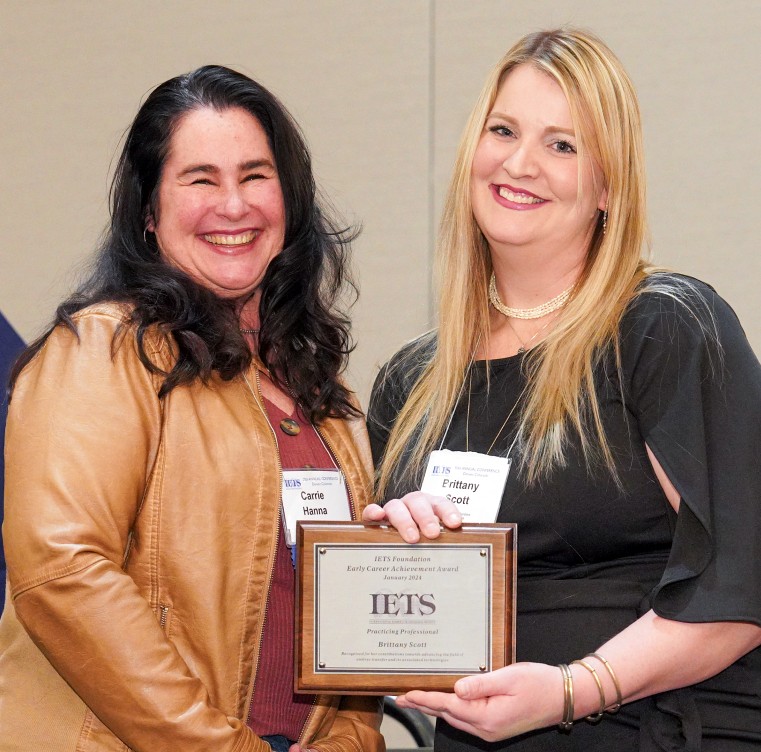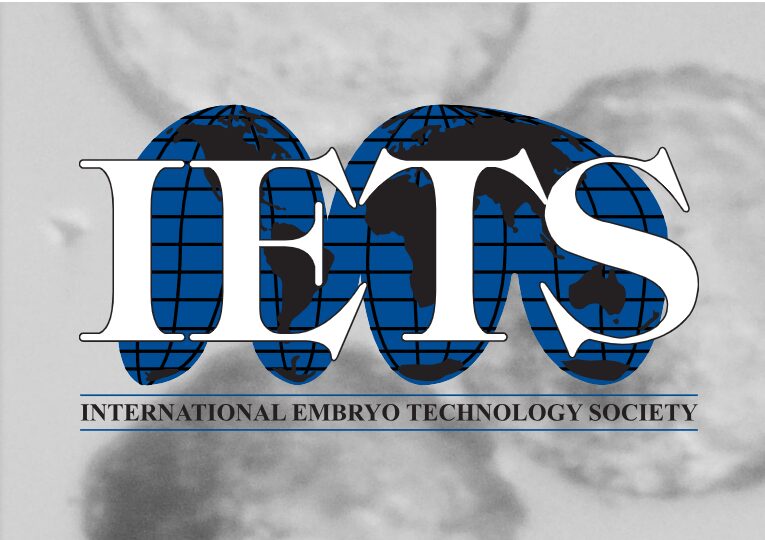On a momentous occasion at the International Embryo Transfer Society’s (IETS) 50th-anniversary conference in Denver, Colorado, SMART Reproduction’s CEO and founder, Brittany Scott, was honored with the prestigious IETS Foundation Early Career Achievement Practicing Professional Award. This recognition is a testament to Mrs. Scott’s unwavering commitment to advancing small ruminant embryo transfer technologies and increasing the global accessibility of U.S.-sourced, data-backed caprine and ovine germplasm. This blog post explores the implications of her groundbreaking work and its far-reaching impact on global food security.

The Global Impact of SMART Reproduction
Brittany Scott’s visionary leadership at SMART Reproduction has spearheaded the integration of advanced reproduction technologies, transforming the landscape of small ruminant embryo transfer globally. Through her dedication, families and nations are economically empowered, contributing to increased protein production and ensuring broader food security. Scott’s approach aligns with the pressing need to produce more with less, addressing the challenges posed by a growing world population and the escalating demand for safe, high-quality food.
https://smartrepro.com/about-us/
IETS 50th Anniversary: Reflecting on the Past, Present, and Future
This year’s IETS conference theme, “Past, present, and future of reproductive biotechnologies—IETS 50th Anniversary,” encapsulates the essence of the revolutionary strides made in reproductive science. Renowned speakers will delve into pivotal topics, including the evolution of IETS over the past 50 years, determinants of pregnancy establishment, and current technologies shaping the embryo transfer industry. The discussions will also explore fetal growth, placental function, and the latest advancements in reproductive technologies, providing a comprehensive overview of the field.
Brittany Scott’s Vision for the Future
Scott’s acceptance of the Early Career Achievement Award reflects her past accomplishments and her vision for the future of embryo technologies. In her words, “We must use embryo technology to make advances in genetic gain that will make livestock production more efficient and thus more sustainable. We have to produce more with less, and embryo technology is the only way to do that on a timeline that will make a difference to the planet.” This statement underscores the urgency and relevance of incorporating advanced reproductive techniques to address global challenges.
IETS Members at the Forefront of Research
The IETS members, including Scott, continue to be pioneers in the field, conducting cutting-edge research that enhances reproductive efficiency. Their contributions span various domains, from regulating embryo development, pregnancy establishment, and genetics to overall management practices. These advancements are pivotal in improving production efficiency, a critical factor given the escalating demand for safe and high-quality food in the face of a growing world population.
The Role of Practicing Professional
The award category, Practicing Professional, highlights the significance of individuals working in industry, private practice, or academia who contribute to embryo transfer and associated technologies. These professionals, whether in clinical or laboratory settings, play a crucial role in advancing the frontiers of reproductive science, contributing to increased efficiency in livestock production and conservation efforts for wild and endangered species.
https://www.iets.org/Foundation/Awards/Foundation-Early-Career-Achievement
Conclusion
Brittany Scott’s recognition as the IETS Foundation Early Career Achievement Practicing Professional Award recipient is a testament to her dedication and tireless efforts in advancing global agriculture through SMART Reproduction. As the IETS celebrates its 50th anniversary, the conference serves as a platform to reflect on the past, explore the present, and envision a future where reproductive biotechnologies play a pivotal role in ensuring food security, sustainability, and biodiversity conservation. The collaborative efforts of practitioners and professionals like Scott continue to shape the industry’s trajectory, fostering a promising future for agriculture and beyond.

